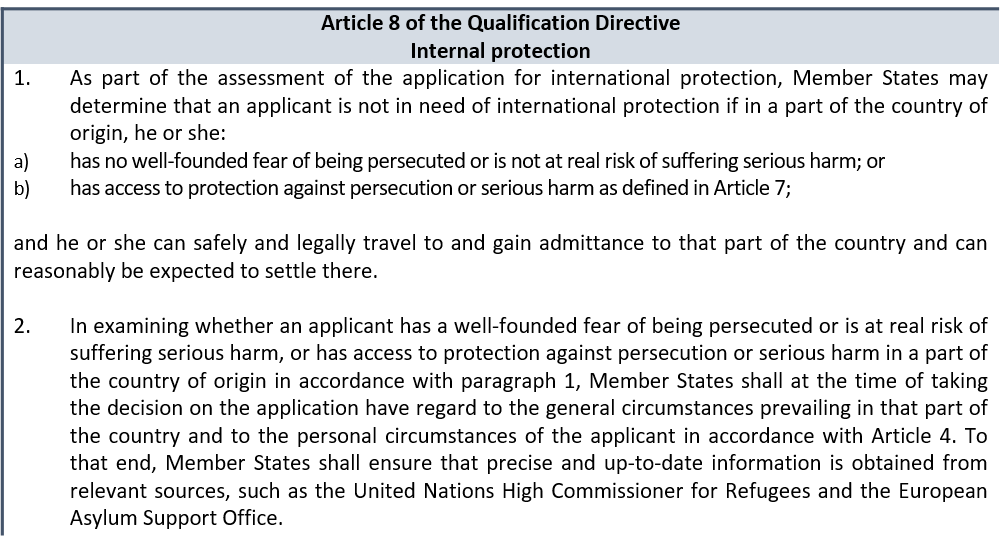This chapter is developed with reference to Article 8 QD on internal protection:

It should be noted that the provision of Article 8 QD is an optional one. Therefore, the relevance of this chapter to the practice in Member States will depend on the transposition of Article 8 QD and/or the concept of internal protection alternative (IPA) in national legislation and its implementation in practice.
In national legislation and practice, IPA may also be referred to as ‘internal flight alternative’, ‘internal relocation’, etc.
Preliminary remarks
IPA should only be examined after it has been established that the applicant has a well-founded fear of persecution or faces a real risk of serious harm and that the authorities or other relevant actors of protection are unable or unwilling to protect him or her in his or her home area. In such cases, if IPA applies, it can be determined that the applicant is not in need of international protection.
It should, however, be stressed that there is no requirement that the applicant has exhausted the possibilities to obtain protection in different parts of his or her country of origin before seeking international protection.
The analysis of IPA should be part of the assessment of the future risk of being subjected to persecution or serious harm. When assessing whether or not IPA applies, the burden of proof lies with the determining authority, while the applicant remains under an obligation to cooperate. The applicant is also entitled to submit elements to indicate that IPA should not be applied to him or her.
This chapter is structured following the elements of the legal provision of Article 8 QD:

In relation to these elements, when assessing the applicability of IPA, the case officer should consider the general situation in the respective part of Nigeria, as well as the individual circumstances of the applicant.
This chapter analyses and provides guidance on the applicability of IPA in Nigeria in general, with a focus on the situation in Lagos as an example.

